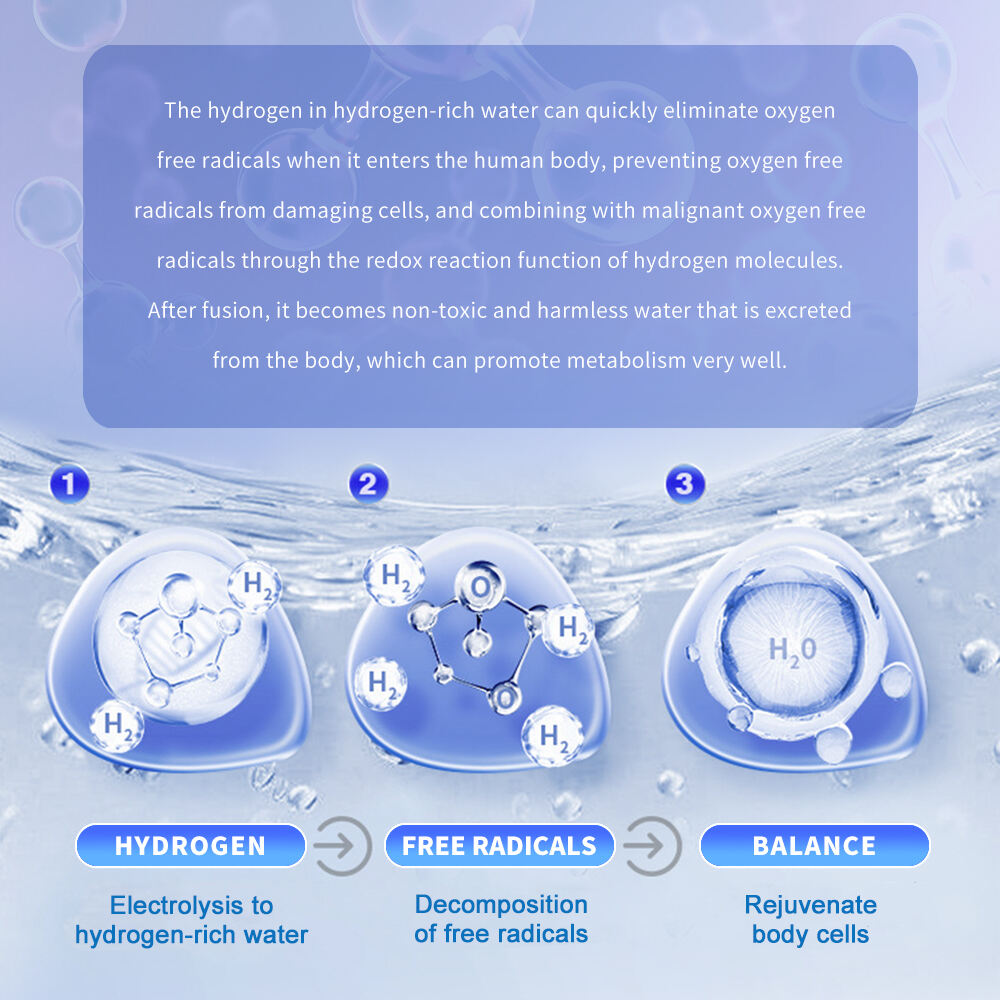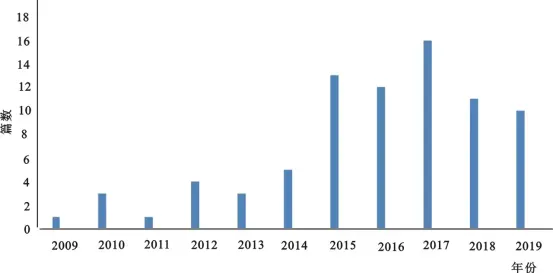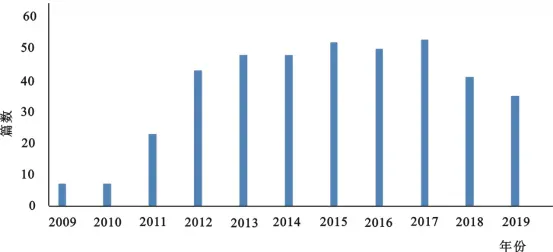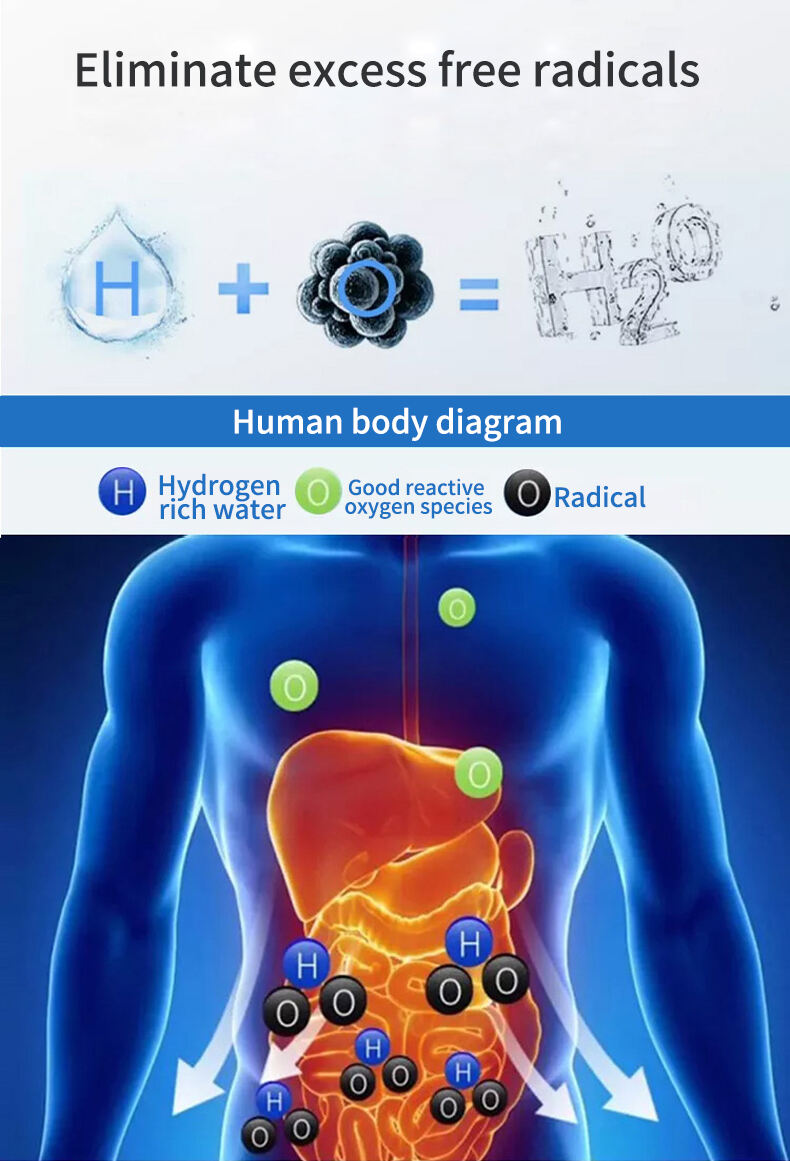Mi az a hidrogén-gazdaságú víz?
I. Mi az a hidrogén-gazdaságú víz?
A hidrogénben gazdag víz bizonyos koncentrációban tartalmaz hidrogéngázt. A neve a japán „Suiso water” (水素水) kifejezésből ered.
ismert még mint "hidrogénvíz". A hidrogén (H₂) egy színtelen, szagtalan, kétatomos gázmolekula, amelynek sűrűsége kisebb, mint a levegőé. Jellemzője, hogy rosszul
oldódik vízben, és vízkiszorítási módszerrel gyűjthető. Szobahőmérsékleten a hidrogén viszonylag stabil, és nem reagál könnyen más anyagokkal.
ugyanakkor bizonyos körülmények között (például gyújtás, hőmérséklet-emelés vagy katalizátorok használata) heves reakciókba léphet, és érintkezésbe kerülve
gyújtóforrással robbanásveszélyes lehet. Ennek következtében a hidrogéngazdag víz előállításának kezdeti technológiai kihívása az volt, hogy a vízben
viszonylag magas és stabil hidrogénkoncentrációt lehessen fenntartani. A hazai nano gáz-folyadék keverési technológia fizikai módszerekkel
egyenletesen beágyazza a hidrogénmolekulákat a vízmolekulákba, ezzel elérve az egyensúlyt a vízben
hidrogén és víz. Ez a technológia megszabadul a vízben lévő hidrogén gazdagításának és stabilizálásának nehézségeitől. Az így keletkező hidrogén-gazdag víz
magas hidrogénkoncentrációval és kiváló stabilitással rendelkezik.

II. A hidrogénben gazdag víz kutatásával kapcsolatos szakirodalmi elemzés
Az utóbbi években a kutatók több felfedezést és haladást tettek a hidrogénben gazdag víz alkalmazásában és fejlesztésében. A keresés
A CNKI (Kínai Nemzeti Tudásinfrastruktúra) adatbázis a hidrogénben gazdag vízzel kapcsolatos friss kutatási cikkekhez, a "Tegészségügyi és Orvosi Technológia" kiválasztásával
a kutatók a "hidrogén-gazdag víz" vagy a "hidrogén" kulcsszót használva 452 tanulmányt találtak. A kiadványok múltbeli tendenciája
a következő 10 évre az 1. ábra mutatja. Hasonlóképpen a "Mezőgazdasági tudomány és technológia" kategóriát választva, és ugyanazokat a kulcsszókat használva 100 tanulmányt adtak ki,
a 2. ábrán látható kiadási tendenciával. A 1. és 2. ábrán látható, hogy a hidrogénben gazdag vizekről szóló kutatási jelentések pozitív tendenciát mutattak 2017-re,
a kutatók egyre nagyobb figyelmet fordítanak rá.
A hidrogénben gazdag víz kutatása 2007-re nyúlik vissza, amikor Ohsawa és mtsai. felfedezték, hogy a H₂ képes szelektíven semlegesíteni a peroxinitritet (ONOO⁻) és
a hidroxil gyököket (·OH), eltávolítja a felesleges reaktív oxigénszármazékokat (ROS), és ezzel enyhíti a cerebrális ischaemia okozta oxidatív károsodást. Azóta
a hidrogén kutatása fokozatosan egyre nagyobb figyelmet kapott. A hidrogénben gazdag vízre és a hidrogénre vonatkozó alkalmazott kutatások az elmúlt években főként olyan területekre
koncentráltak, mint a gyógyászat, sport, mezőgazdaság és kozmetika.


2.1 Jelenlegi alkalmazási helyzet az orvostudományban
A kutatások azt találták, hogy a hidrogén jelentős terápiás hatással rendelkezik, és különféle betegségek kezelésére is alkalmazható. Ugyanakkor a legtöbb vizsgálat még az állatkísérletes
szakaszban tart, és tényleges klinikai hatékonyságát még nem igazolták vagy publikálták. Egyes tanulmányok szerint a hidrogént különféle betegségmodellekben és terápiás kutatásokban
használják, beleértve az ischaemia-újraperfúziós sérüléseket, cukorbetegséget, rák megelőzését és kezelését, agyrázkódást és krónikus obstruktív tüdőbetegséget. Terápiás
az eredmények számottevőek, a kutatási eredmények gyorsan haladnak, és széles körű klinikai alkalmazási kilátásokkal rendelkezik.
Hu Honglei és mtsai tanulmányozták a hidrogéngazdag víz védőhatását az aflatoxin B1 (AFB1) által kiváltott májkárosodás ellen patkányokban. A tanulmány kimutatta, hogy a hidrogéngazdag
víz csökkentheti az AFB1 által kiváltott májkárosodást patkányokban, valószínűleg az AFB1 okozta oxidatív stressz csökkentésével és a MAPK jelátviteli
pálya aktiválásának gátlásával. Ugyanakkor más tanulmányok szerint a magas koncentrációjú hidrogén segíthet csökkenteni az agyi traumás sérülést patkányokban, valószínűleg a
anti-apoptotikus és anti-oxidatív stressz mechanizmusokon keresztül. Shi Qian és mtsa áttekintette a hidrogén megelőző és terápiás hatásait szív- és érrendszeri betegségekben, kimutatva,
hogy a hidrogén hatékonyan eltávolítja a hidroxilgyököket, szelektív antioxidáns aktivitást tanúsít, és hatékony megelőzést és kezelést kínál például
atherosclerosis és szervgyulladás. Így új antioxidánsként szolgálhat, amely terápiás lehetőséget kínál a cardiovascularis betegségek kezelésére.
Ezen túlmenően, vannak jelentések arról, hogy hidrogénben gazdag vizet kombinálnak hagyományos kínai gyógyászattal betegségek megelőzésére és kezelésére. Yao Huan és mtsai vizsgálták
a hidrogénben gazdag víz Xiangsha Liujunzi pirulákkal való kombinációjának hatását funkcionális dyspepsiában szenvedő patkányokon, a testtömeg, a gyomorürülési sebesség, a vékonybél-áthaladási sebesség, valamint a mozgásstimuláló hormon (motilin), gasztrin és gremlin értékek alapján. Az eredmények kimutatták a hidrogénben gazdag víz
kombinált alkalmazásának szinergikus terápiás hatását. A hidrogénben gazdag vízzel végzett orvosi kutatások kiterjedtek és széleskörű alkalmazási területeket ölelnek fel. Azonban a legtöbb tanulmány még
állatkísérletekre korlátozódik. További kutatás szükséges a klinikai alkalmazások terén, amelyek fejlesztési és alkalmazási potenciállal rendelkeznek.
további kutatás szükséges a klinikai alkalmazások terén, amelyek fejlesztési és alkalmazási potenciállal rendelkeznek.

2.2 Jelenlegi alkalmazási helyzet a sportban
A hidrogénben gazdag víz, mint ivóvíz, a sport szektorban is széles körben kutatott. Zhang Shuangshuang és mtsai. vizsgálták a szabad oxidációs stressz sérülések változásait
és antioxidáns indikátorokat mérték mérsékelt intenzitású kitartó edzésen részt vevő patkányoknál, mielőtt és miután szabadon fogyasztottak hidrogénben gazdag vizet. Az eredmények
azt mutatták, hogy 8 hét szabad fogyasztás után a gyakorlat által kiváltott lipidperoxidációs károsodás jelentősen csökkent, és az antioxidáns képesség számottevően
fokozódott, ezzel bizonyítva, hogy a hidrogénben gazdag víz védőhatást fejt ki a gyakorlat által kiváltott oxidatív stressz sérülésekkel szemben. Zou Xian és mtsai. megfigyelték a hatásokat,
amelyeket a glükóz, hidrogénben gazdag víz, vagy a glükóz-hidrogénben gazdag víz kombinációjának alkalmazása váltott ki az összeomlásszerű edzés után közvetlenül a patkányok malondialdehid (MDA)
szintjeiben, izomglikogén tartalmában és edzési kitartásban a fáradtság utáni regeneráció szempontjából. Az eredmények azt jelezték, hogy a glükóz és hidrogénben gazdag víz kombinációja hatékonyan
csökkent szérum MDA-szintet, növelt gastrocnemius izomglikogént és javított edzésállóképességet eredményezett. A glükóz kizárólag az izomglikogén növekedését idézte elő, míg
a hidrogéngazdag víz kizárólag a szérum MDA-szintjének csökkenését okozta. Ou Minghao és mtsai kutatása kimutatta, hogy hidrogéngazdag víz adagolása női dzsúdó versenyzőknek
magas intenzitású edzés után jelentősen csökkenti a szabad gyökök szintjét, növeli az antioxidáns enzimek aktivitását és fokozza az összes antioxidáns képességet. A hidrogéngazdag
víz védőhatást nyújthat a nagy terhelésből fakadó lipidperoxidációval szemben.


2.3 A hidrogénben gazdag víz aktuális alkalmazási státusza a kozmetikában
Lü Pingping és mtsai közölték a hidrogéngazdag víz potenciális bőrfeltisztító hatásáról szóló kutatásukat. Kiemelkedő antioxidáns tulajdonságaira alapozva vizsgálták
gátló hatását a tirozináz aktivitásra. Az eredmények azt mutatták, hogy a hidrogéngazdag víz hatékonyan gátolja a tirozináz aktivitást, így ígéretes alkalmazási területeket jelent a
a kozmetikai szektorban. Zhou Ping és munkatársai kutatása azt mutatta, hogy a hidrogénben gazdag víz elősegíti a sugárzás okozta bőrsérülések gyógyulását, valószínűleg a
oxidatív károsodás és gyulladásos válaszok csökkentéséhez kapcsolódó mechanizmusokon keresztül.








